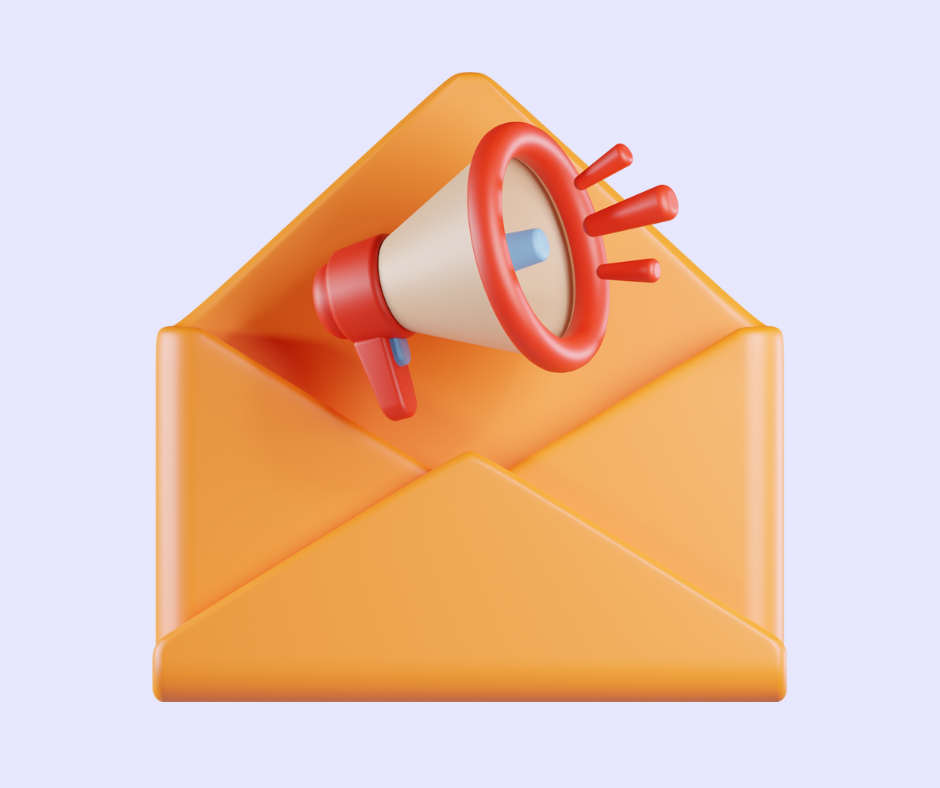Small business owners, listen up: this is why you need email marketing
As a small business owner, you're always looking for ways to grow your business and connect with your customers. With so many marketing channels available, it can be hard to know where to focus your time and resources. But if you're not yet using email marketing, you could be missing out on a powerful tool for building relationships, increasing engagement, and driving sales. In this post, we'll explore why email marketing should be a key part of your marketing strategy. From building relationships with your customers to cost-effective marketing, we'll show you why email marketing can help your small business succeed.
Drive deeper connections with your community
Building relationships and increasing customer engagement
The power of personalization
Cost effective marketing
Email marketing best practices
Measuring the success of your email campaigns
Building relationships and increasing customer engagement
Building strong relationships with your customers is a critical component of small business success. Email marketing can help you achieve this goal by providing a direct line of communication with your audience. By sending regular emails, you can keep your customers engaged, informed, and interested in what you have to offer.
Email marketing allows you to create targeted, personalized messages that speak directly to your customers' interests and needs. You can segment your email list based on factors such as demographics, purchase history, and behavior, and send tailored messages to each group. This personalized approach makes your customers feel valued and appreciated, which can lead to increased loyalty and repeat business.
Moreover, email marketing provides an opportunity to gather feedback from your customers, which can help you improve your products, services, and overall customer experience. By including surveys or feedback forms in your emails, you can gather valuable insights that can inform your business strategy and improve your customer relationships.
The power of personalization
One of the most powerful benefits of email marketing for small business owners is the ability to personalize your messages for each individual recipient. Personalization allows you to connect with your audience on a deeper level, which can increase engagement, brand loyalty, and sales.
Personalized emails can take many forms, such as addressing the recipient by name, including information about their past purchases or browsing behavior, or tailoring the content of the email to their interests and preferences. By using data and analytics, you can gain insights into your customers' behavior and preferences, allowing you to create emails that are more relevant and engaging.
Research shows that personalized emails have higher open and click-through rates than generic emails. When customers feel that an email is tailored specifically to them, they are more likely to engage with it and take action, such as making a purchase or sharing it with others.
Overall, the power of personalization cannot be overstated when it comes to email marketing. By taking the time to tailor your messages to each recipient, you can increase the effectiveness of your email campaigns and strengthen your relationships with your customers.
Cost-effective marketing
One of the biggest advantages of email marketing for small business owners is its cost-effectiveness. Unlike traditional marketing methods such as print ads or direct mail, email marketing allows you to reach a large audience at a relatively low cost.
With email marketing, you don't have to worry about the costs associated with printing, postage, or distribution. Instead, you can create and send emails to your list of subscribers in a matter of minutes, all from the comfort of your computer.
Additionally, email marketing platforms often offer affordable pricing plans based on the size of your email list, making it accessible for businesses of all sizes. You can also save time by using templates and automation features to streamline your email creation process.
Another cost-saving benefit of email marketing is the ability to track your results and make data-driven decisions. By analyzing your open rates, click-through rates, and other metrics, you can optimize your email campaigns to maximize their impact and minimize costs.
Email marketing best practices
Email marketing is a powerful tool for small business owners, but to see success, it's important to follow best practices and implement effective strategies. Here are some tips to help you get started:
Build a quality email list: Don't buy email lists or use spammy tactics to grow your list. Instead, focus on building a high-quality list of engaged subscribers who are genuinely interested in your business.
Use segmentation and personalization: Segment your email list based on interests, behavior, and other factors to send targeted and personalized emails that resonate with your audience.
Create compelling subject lines and email content: Your subject line is the first thing people see when they receive your email, so make it attention-grabbing and relevant. Similarly, your email content should be informative, engaging, and valuable to your subscribers.
Optimize for mobile: More than half of all email opens happen on mobile devices, so make sure your emails are optimized for mobile viewing.
Test and measure your campaigns: Experiment with different subject lines, content, and calls to action to see what resonates with your audience. Use data and analytics to track your results and optimize your campaigns over time.
By following these best practices and implementing effective email marketing strategies, small business owners can build stronger relationships with customers, drive engagement and sales, and grow their business.
Measuring the success of your email campaigns
Measuring the effectiveness of your email campaigns is essential to understanding what's working and what's not. By tracking key metrics, you can make data-driven decisions and optimize your email marketing strategy for better results. Here are some important metrics to track:
Open rates: This measures the percentage of subscribers who opened your email. A low open rate could indicate a problem with your subject line or email content.
Click-through rates: This measures the percentage of subscribers who clicked on a link within your email. A low click-through rate could indicate a problem with your email content or calls to action.
Conversion rates: This measures the percentage of subscribers who completed a desired action, such as making a purchase or filling out a form.
Unsubscribe rates: This measures the percentage of subscribers who opt-out of your email list. A high unsubscribe rate could indicate that your content is not relevant or valuable to your audience.
Bounce rates: This measures the percentage of emails that were undeliverable. A high bounce rate could indicate that your email list needs to be cleaned or updated.
By tracking these metrics and analyzing your results, you can make data-driven decisions to improve your email marketing strategy and achieve better results over time.
Related Articles
Ready to start email marketing? Get Started With Fickl Today.




